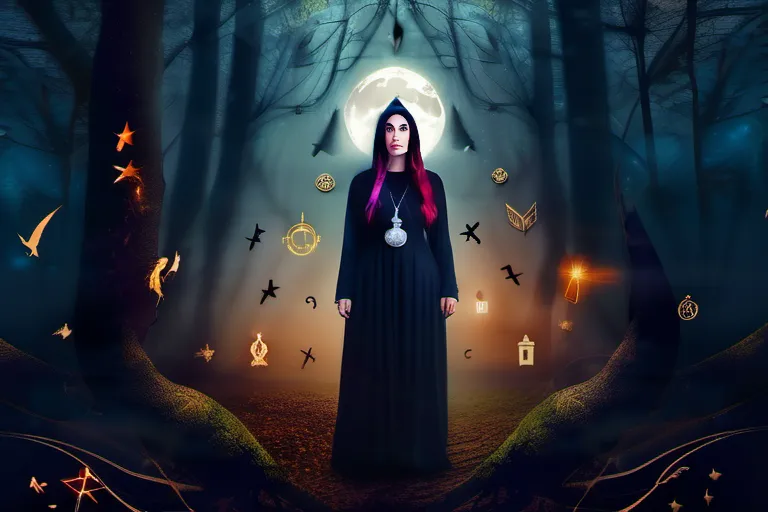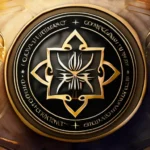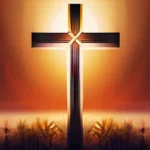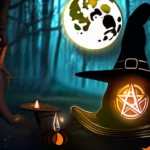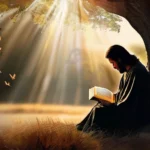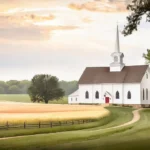Exploring the unique aspects of Wicca and its practices compared to other belief systems.
Wicca is a modern pagan religion that has gained popularity in recent years. It is often associated with witches, but what makes a Wiccan witch distinct from other religious beliefs? In this article, we will explore the unique aspects of Wicca and its practices compared to other belief systems.
The History and Origins of Wicca
The history and origins of Wicca are like tracing back to the very roots of human spirituality. Imagine peeling back layers of time, each one revealing a deeper connection to nature and the divine. How did this ancient practice find its way into our modern world?
Wicca’s roots can be traced back to ancient pagan religions, where people worshipped the land and the elements as manifestations of deities. These practices were often suppressed during the Christian era, but they never truly disappeared. They lingered in folklore, customs, and oral traditions, waiting for their moment to resurface.
So, what sparked Wicca’s modern resurgence? The mid-20th century saw a cultural shift that valued individuality and spiritual freedom. British writer Gerald Gardner is often credited with formalizing Wiccan practices in the 1950s through his book ‘Witchcraft Today.’ He blended elements of ceremonial magic, folk traditions, and philosophical concepts to create what many recognize as contemporary Wicca.
It’s fascinating how Wicca managed to carve out its own path. Unlike some monotheistic religions that focus on one supreme deity, Wicca celebrates a pantheon of deities, often seen through the lens of nature itself. This polytheism is akin to honoring multiple voices in a conversation about the divine.
But Wicca didn’t stop there. It embraced a holistic approach to spirituality, integrating elements from various traditions. The eclectic nature of Wiccan practices allows practitioners to choose their path within this framework, much like selecting ingredients for a unique recipe that suits individual tastes.
So, why does understanding the history and origins of Wicca matter? It provides context for its distinctiveness—embracing ancient wisdom while adapting to modern sensibilities. This blend makes Wiccan practices not just a belief system but a lived experience that connects individuals with their environment and each other in profound ways.
Wiccan Beliefs and Practices
Imagine stepping into a garden where every plant, tree, and flower carries its own story—this is what Wicca feels like for many practitioners. The emphasis on nature in Wiccan beliefs makes it unique compared to other religious paths that might focus more on abstract concepts or texts. How can one worship the divine if not through the very world around us? In Wicca, nature is a living, breathing deity, and everything within it holds sacred significance.
The practice of magic in Wiccan rituals adds another layer of depth to its distinctiveness. Is magic simply trickery or something more profound? For Wiccans, magic operates on the principle that we can influence our reality through intention and energy. This belief is not seen as an escape from the world but rather a means to harness the natural forces that govern life. Through spells, rituals, and intentions, Wiccans believe in shaping their destiny, much like sculpting clay into a masterpiece.
The divine feminine plays a central role in Wiccan beliefs, symbolized by deities such as the Goddess or the Triple Goddess (Maiden, Mother, Crone). This emphasis is a stark contrast to monotheistic religions where male deities often dominate. By celebrating and honoring the divine feminine, Wiccans reclaim aspects of spirituality that have historically been overlooked or silenced. Is it not fitting that the cycles of nature, with its nurturing yet powerful aspects, mirror the complex journey of womanhood?
Through these unique beliefs and practices, Wicca offers a path to reconnect with the earth, embrace the mysteries of life, and honor the divine in all forms. It’s like navigating through a labyrinth where every turn reveals new insights about self and world. As you explore this magical path, you might find yourself questioning old perceptions and embracing a deeper connection to the sacredness of existence.
The Wiccan Wheel of the Year
The Wiccan Wheel of the Year: Explore the Wiccan Wheel of the Year, a calendar of eight sacred festivals that mark the changing seasons. Imagine this wheel as a metaphor for life itself—ever turning, always in motion, yet interconnected and meaningful. How does it differ from other religious calendars? Let’s dive into the unique aspects of these eight festivals.
Firstly, Wiccan celebrations are deeply tied to nature. Each festival is centered around seasonal changes, much like how a tree sheds its leaves or a flower blooms in response to its environment. Unlike many other religions that might focus on man-made calendars or dates, the Wheel of the Year is rooted in the natural world. Consider this: if you were a tree, would your life be more meaningful following a set schedule or by blooming when the weather allows it? Wiccan festivals are like those moments, marking the cycles of growth and rest.
Another distinct feature is the balance between masculine and feminine energies. While many religions may emphasize one over the other, Wicca celebrates the duality inherent in nature: light and dark, life and death, male and female. Each festival often honors a deity associated with these energies, creating a harmonious cycle that mirrors the natural world’s rhythm. Could your calendar reflect this balance, or does it lean too heavily towards one aspect?
Moreover, Wiccan festivals are interactive experiences. Unlike some religious observances where you might just observe and pray, Wicca encourages participation through rituals, meditations, and celebrations. It’s a time to connect with the divine and your community, much like how a family comes together during holidays. How often do you participate in activities that bring you closer to those around you?
The Wheel of the Year is not just a calendar; it’s a living, breathing entity that embodies Wiccan beliefs and practices. It shows us that every moment has its own magic and purpose, just like how every season brings something new into our lives. By embracing these festivals, Wiccans find a deeper connection with the world around them, making their spiritual journey as vibrant and dynamic as the natural cycles they celebrate.
Wiccan Magic and Spellcasting
What makes a Wiccan witch distinct from other religious beliefs? It’s like asking what sets a sunrise apart from any other morning, or why some clouds form shapes that never change. In Wicca, magic and spellcasting are integral parts of the practice, much like how sunlight is essential for life on Earth. But unlike traditional religions where faith often takes center stage, in Wicca, the use of magical tools and practices can be seen as a means to connect with the divine.
Take wands for example; they are not just decorative items but serve as a conduit between the physical world and the spiritual realm. When you wave one during a spell, it’s like using a key to unlock doors hidden from ordinary sight. The principles of the Law of Three come into play here too – every action has threefold consequences. This concept is both a warning and a call to responsibility, much like how your reflection in water shows not just yourself but your surroundings.
Crystals are another powerful tool used in spellcasting, each with its own unique energy and properties. Just as different spices enhance the flavor of a dish, crystals can add layers of meaning and effect to your spells. For instance, quartz crystal is often used for amplifying energy, while amethyst helps with clarity and healing. The choice of which crystal to use in a spell is akin to choosing the right brushstroke in painting – it can make all the difference.
But remember, these tools are not just magical; they also serve as reminders of our connection to nature. In Wicca, the natural world is seen as a living entity, and every aspect – from the moon phases to the changing seasons – plays a role in your spells and rituals. It’s like weaving together threads of a complex tapestry where each piece has its place and purpose.
So, what makes a Wiccan witch distinct? It’s the belief that magic is real, and it can be harnessed to bring about positive change. This practice isn’t just about casting spells but also about understanding the interconnectedness of all things. Just as every leaf on a tree contributes to its health, each spell cast in Wicca contributes to a greater whole. It’s a journey of self-discovery and empowerment that challenges us to see magic not just as an end but as a means to deepen our connection with the world around us.
The Role of Deities in Wicca
What makes a Wiccan witch distinct from other religious beliefs isn’t just about practicing magic and spellcasting, but also deeply rooted in their relationship with deities. In Wicca, the pantheon is not monolithic; it’s diverse and inclusive, reflecting a wide array of personalities and aspects. Imagine walking into a bustling marketplace where each stall represents a deity, offering unique goods and services. Just as you might seek out specific vendors based on your needs, Wiccans invoke different deities for various purposes.
At the heart of this pantheon is the Great God and Goddess, often symbolized by masculine and feminine principles. These deities are not just abstract concepts but living presences that guide and inspire. For many Wiccans, invoking the Great God might feel like calling upon a wise and powerful mentor, while invoking the Great Goddess could be akin to finding comfort in a nurturing mother figure. But the roles of these deities extend beyond gendered archetypes; they encompass a vast spectrum of attributes and energies.
Adding to this complexity are the lesser deities and spirits, each with their own unique characteristics and domains. These beings can range from nature spirits like dryads and faeries to household deities that watch over specific areas or tasks. It’s like having a diverse cast of characters in your life, each with their distinct roles and contributions. For instance, invoking the spirit of a particular tree might bring about healing energies, while calling upon a household deity could ensure prosperity within one’s home.
What truly sets Wicca apart is its dynamic and interactive approach to worship and divinity. Unlike many other religions that often place deities on high pedestals, Wiccans see these spiritual beings as integral parts of their lives, deserving of respect and communication. This two-way dialogue creates a sense of community and shared experience, where the divine is not just observed but actively engaged with.
So, how do you choose which deity to honor? It’s like choosing your allies in a quest; sometimes it’s the one who speaks directly to your needs, or perhaps it’s a long-term partnership that grows stronger over time. The beauty of Wiccan deities lies in their versatility and accessibility, making them relevant for every moment and every seeker.
Ethics and Morality in Wicca
What makes a Wiccan witch distinct from other religious beliefs isn’t just about spells and rituals, though those certainly play a significant role. It’s about a unique ethical framework that guides every aspect of life. Have you ever wondered how someone can live in harmony with nature while also navigating the complexities of everyday existence? The Wiccan Rede, perhaps one of the most well-known principles in Wicca, encapsulates this philosophy beautifully. It states, ‘An it harm none, do what ye will.’ But what does this really mean?
This simple yet profound statement isn’t just a rule to follow; it’s a guiding light for ethical living. Imagine an apple tree in your backyard, providing sustenance and joy. The Wiccan Rede suggests that you should respect the tree and others around it, ensuring no harm is done to anyone or anything. This principle encourages a mindful approach to life, where every action is weighed against the potential consequences.
The Wiccan Rede isn’t just about avoiding harm; it’s also about making choices that bring joy and fulfillment. It challenges us to ask ourselves: What are the implications of my actions? Are they aligning with my values, or am I causing unnecessary pain?
- Imagine a river, its waters clear and pure, reflecting the beauty around it. The Wiccan Rede reminds us that we should protect this river as if our lives depended on it—because in many ways, they do.
- It also inspires us to create a positive impact, much like planting seeds of kindness and compassion wherever we go. This is not just about being good; it’s about creating a ripple effect that spreads goodness far beyond what we can see or touch.
The importance of harm none extends beyond the physical world into the realm of emotions and relationships. It’s about fostering an environment where everyone feels safe, respected, and valued. By practicing this principle, Wiccans strive to build a community that thrives on mutual respect and understanding.
So, next time you make a decision, ask yourself: Will this action harm anyone or anything? The answer will guide your path towards living a more ethical and fulfilling life. After all, we are part of the natural world, and our actions have consequences that echo through the fabric of existence.
The Wiccan Rede serves as a powerful reminder to live in balance and harmony with nature and others. It’s a philosophy that encourages us to lead lives filled with joy, compassion, and responsibility. Are you ready to embrace this ethical framework and see how it transforms your life?
Conclusion
 Wicca is a complex and fascinating religion that offers a unique perspective on spirituality. By understanding its key principles and practices, you can gain a deeper appreciation for the distinctiveness of Wiccan witchcraft.
Wicca is a complex and fascinating religion that offers a unique perspective on spirituality. By understanding its key principles and practices, you can gain a deeper appreciation for the distinctiveness of Wiccan witchcraft.

